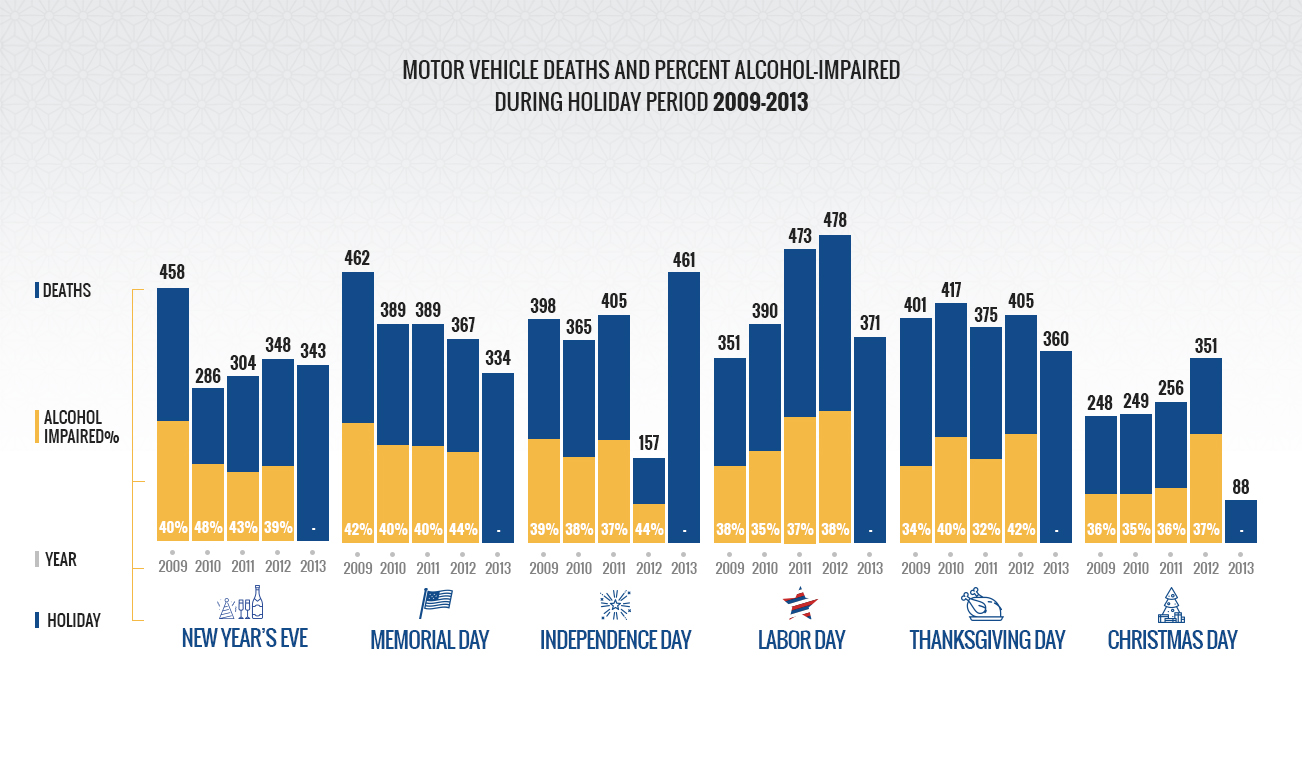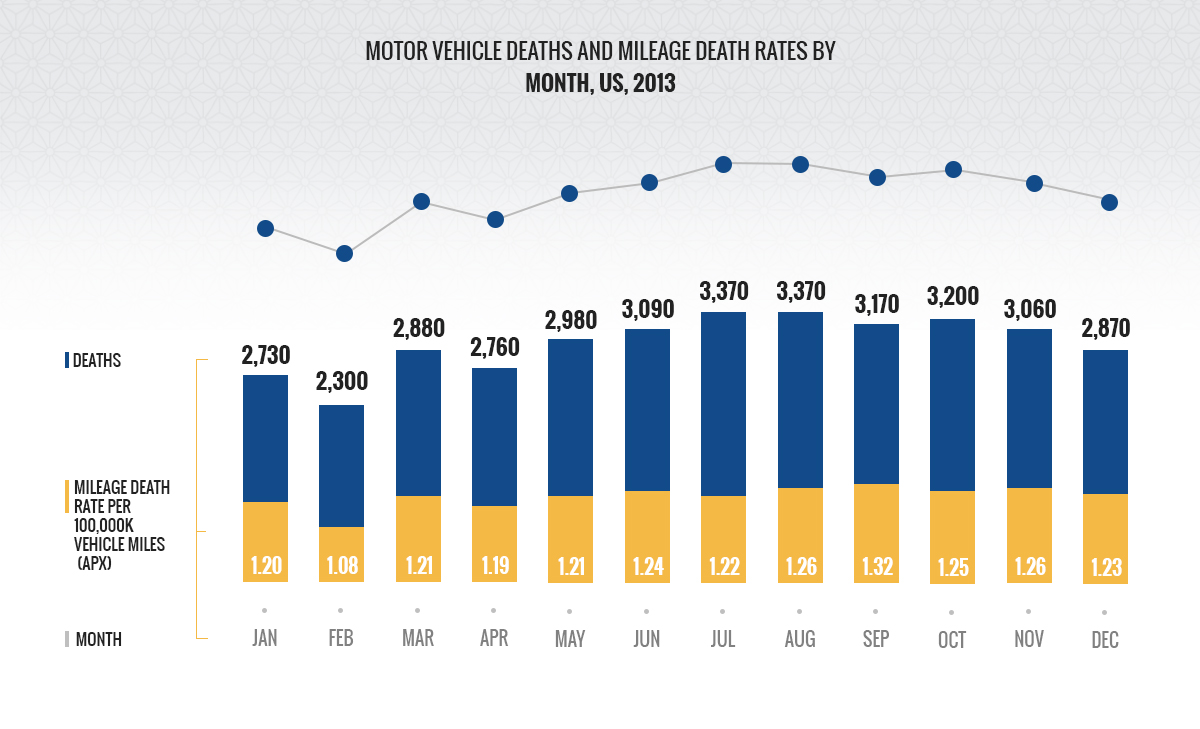Long considered the longshot dream of stoners, the marijuana legalization movement has picked up a considerable amount of steam in recent years. After decades with little to no progress advancing their cause, advocates of marijuana legalization pushed through ballot measures in Colorado and Washington in 2012.
Two years later, three Oregon, Alaska, and Washington, DC followed suit. Now, in 2016, there’s even more states considering legalization initiatives: California, Nevada, Arizona, Maine, Massachusetts, and Vermont.
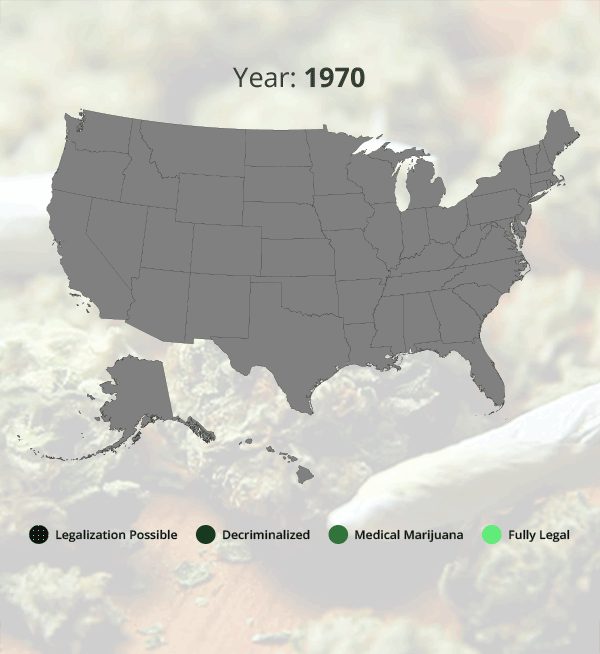
This rapid expansion of marijuana legalization corresponded with a similar increase in public opinion in support of marijuana legalization. Over the last 40 years, the trend in support has remained mostly flat, but in the last 5 years, support for legalization has increased dramatically. In 2011, a majority of Americans supported legalization for the first time, according to Pew Research Center.
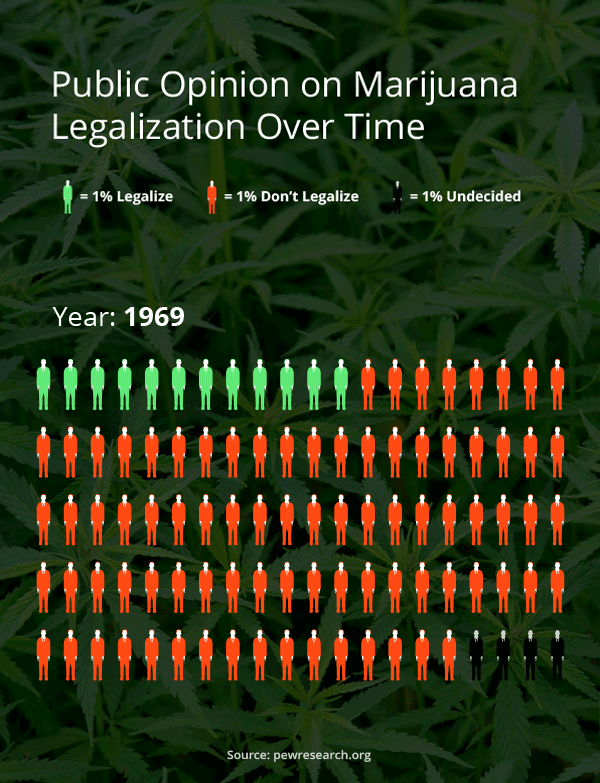
Interestingly, public support for marijuana is divided between those who have and those who have not tried marijuana before. But, to the chagrin of activists, not everyone who has tried marijuana before thinks it should be legal. According to polling data, 29% of people who oppose legalization have tried marijuana before. Conversely, 71% of people who support marijuana legalization have tried marijuana before.

With more and more states liberalizing their marijuana laws, there’s no consensus on the best way to regulate marijuana sales. Each state so far has its own quirks and weird regulatory rules. For example, Colorado originally mandated that marijuana growers, processors, and retailers be vertically integrated, while Washington prohibited vertical integration. While Colorado and Oregon legalized at-home growing, Washington state prohibits it. These laws have been changing rapidly, and all manner of marijuana sales are illegal according to the federal government.

States also differ on penalties for breaking their legalization laws. Each state lets you possess at least 1 oz of flower, which is more than enough for most people. However, pick up more than that, and be prepared to face harsh penalties. In Colorado, more than 12 oz of marijuana (still 4 oz less than 1 lb) could get you fined up to $100,000. In Washington, only 1.4 oz could get you up to 5 years in prison.
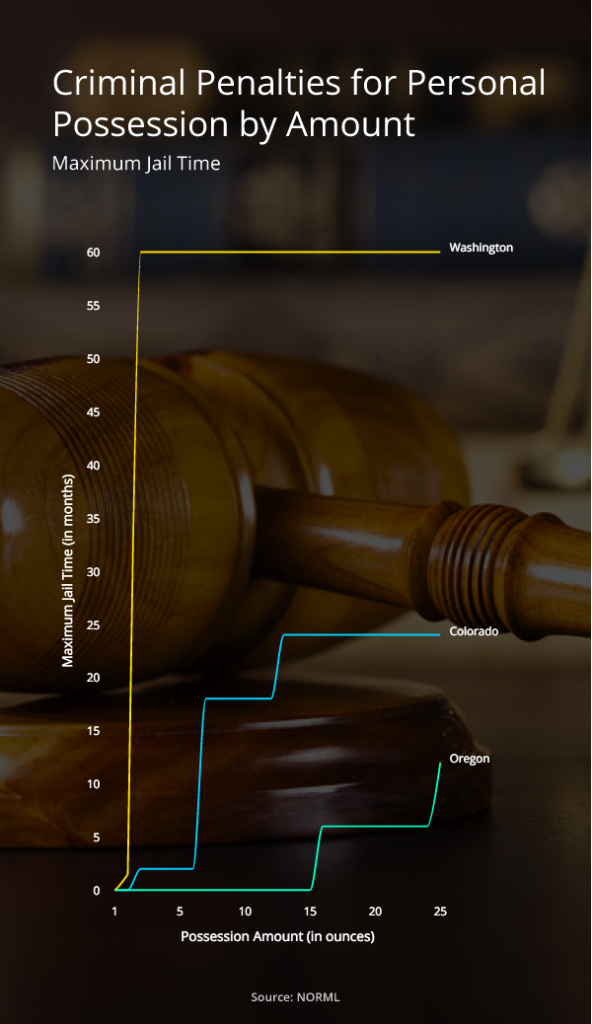
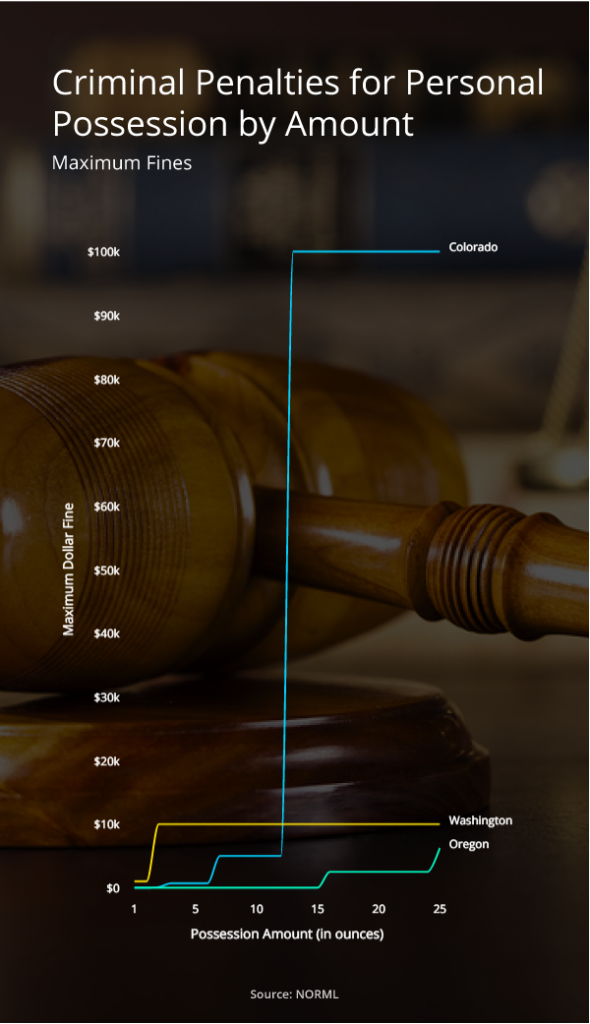
One of the main reasons activists give for supporting legalization efforts is the tax revenue that recreational sales of marijuana will bring in. Along with saving on incarceration costs, states like Colorado have seen record level of tax revenue going to schools. In the graph below, you can see how much tax revenue each state has brought in over the course of retail sales in the state. (Alaska isn’t included because recreational sales haven’t started there yet.)

Effects of marijuana legalization haven’t been all positive, however. There’s some evidence that since marijuana was legalized, more people have been driving while high. In Washington, the proportion of drivers testing positive for THC rose from 19% in 2012 to 33% in 2015. This poses a distinct challenge for police officers because there’s no easy way to check for marijuana intoxication as there is for alcohol intoxication.
The jury is still out on whether legalization of marijuana is a good idea overall. Ultimately, voters and elected officials in each state will decide. Fortunately, there a number of resources that people can use to lessen the potential negative effects of marijuana legalization, from services like Narcotics Anonymous, to help people with dependency, to Uber and Lyft, to help get you home safe.
